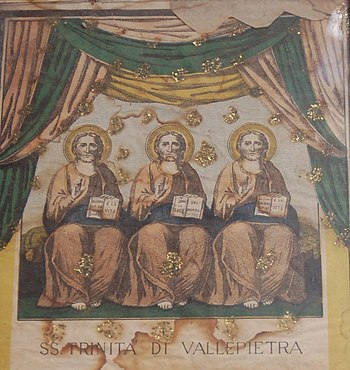Further research on Talpiot Tomb which was discovered in East Jerusalem in 1980 may indicate that it is with “virtually unequivocal evidence” the family grave for Jesus of Nazareth, his wife Mary Magdalene, and his son, Judah.
In 2007 already a documentary made a case that the 2,000-year-old "Tomb of the Ten Ossuaries" belonged to the family of Jesus of Nazareth. The inscriptions and the approximate dates of burial have led some to suggest the Talpiot Tomb means Jesus married, that he fathered a child, and that the existence of bodily remains means the Resurrection could never have happened.
About that last tomb of Jesus they seem to overlook the inscription in Aramic which reads “James, son of Joseph, brother of Jesus”, which for me would more indicate that it could perhaps be the grave of Jesus his brother but not that one of Jeshua himself. It is not because an inscription ‘Yeshua bar Yehosef’ (‘Jesus, son of Joseph’) can be found written in the tomb that it has to be the tomb in which Jesus was buried. It also just could be a reference to the people buried in it their connection with Jeshua, the son of man from Nazareth who was considered to be the Messiah.
The scientist makes a reference to a gravestone for the people when it could be found in Liverpool. But he does seem to forget that when there is such a mention on it of the four Beatles it does not have to be that all four would really be buried together in that one grave at that one place where they were born.
It would be wrong to hail the found bones and ossuary boxes as the most significant of all Christian relics. It at the same time could be wrong to say it is a forgery, misinterpretation and reckless speculation. But to say it is really the place where Christ Jesus would have been placed after he died is doubtful, also because it does not comply with the writings from scripture and previous civic writings about the tomb and about the place which was guarded by the Roman soldiers.
In any case the two ancient artifacts found there in East Jerusalem have set off a fierce archaeological and theological debate in recent decades.
How can they have "unequivocal evidence" of the grave being that one of Jesus? Do they have DNA of Jesus? Many at the time could see and hear the witnesses of those who had seen the risen lord and were even prepared to die for what they had witnessed. Their statements made that others after them did not need (further) physical proof.
Many people against Christianity are pleased with those findings of those scientist but forget that we do have the writings from earlier days which are convincing enough and the writings which are God-given for our Christian community to continue to go strong.
+++




















































